Recent posts
-

-
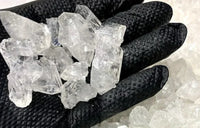 What Are THCa Diamonds?October 14, 2025
What Are THCa Diamonds?October 14, 2025 -
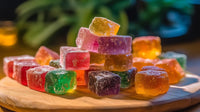 Delta 9 Gummies GuideOctober 8, 2025
Delta 9 Gummies GuideOctober 8, 2025 -
 Head High vs Body High: A Guide to Cannabis EffectsOctober 1, 2025
Head High vs Body High: A Guide to Cannabis EffectsOctober 1, 2025 -
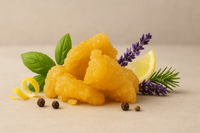 What is THCA Crumble?September 22, 2025
What is THCA Crumble?September 22, 2025 -
 10 Ways to Elevate Self-Care Awareness MonthSeptember 14, 2025
10 Ways to Elevate Self-Care Awareness MonthSeptember 14, 2025
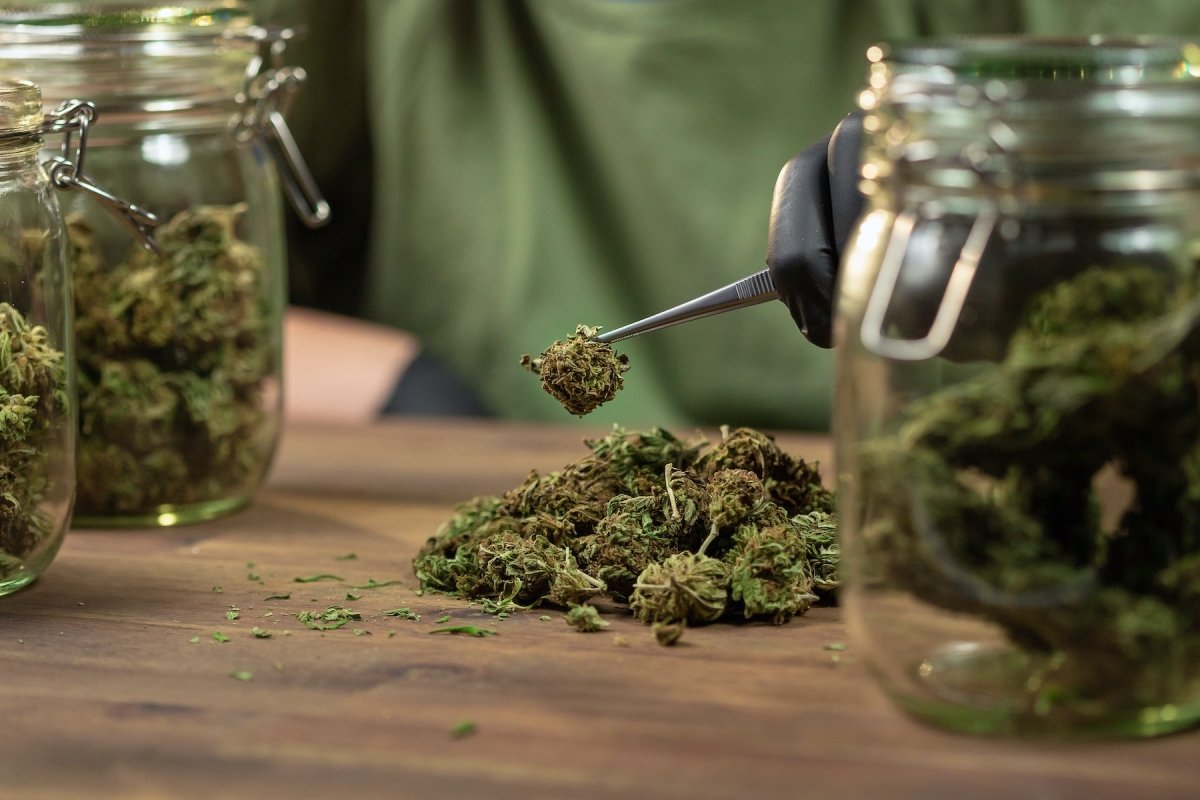
What is THCA Flower?
By Zero Point
Table of Contents
Cannabis culture is perpetually on the brink of something new, bringing forward innovations that are more than just about getting high—they're about exploring the plant's full potential. Among the myriad of cannabinoids that have piqued the interest of enthusiasts and researchers alike, THCA Flower stands out. Not yet as mainstream as THC or CBD, THCA offers a unique experience that is grounded in the natural essence of cannabis. This blog post dives into what THCA Flower is, how it compares to other cannabis forms, its uses, effects, safety, and legality. Whether you’re a seasoned smoker or a curious newcomer, understanding THCA Flower could redefine your cannabis experience.
What is THCA?
Tetrahydrocannabinolic acid (THCA) is a non-psychoactive cannabinoid found primarily in fresh and live cannabis. As the precursor to THC (tetrahydrocannabinol), the most intoxicating component of cannabis, THCA itself does not produce a high until it undergoes decarboxylation. THCA converts into THC through a process called decarboxylation, which occurs naturally during drying or is induced by heat when smoking or vaporizing.
Scientific Perspective
Chemically, THCA is what's known as a carboxylic acid. It retains a three-dimensional shape that prevents it from fitting into the CB1 receptors in the brain, which are responsible for the psychoactive effects associated with THC. This unique property makes THCA particularly interesting for medicinal purposes, as it can potentially provide therapeutic benefits without the psychoactive effects.
What is THCA Flower?

THCA Flower refers to specific strains of cannabis plants that are cultivated to retain high levels of THCA. Unlike traditional marijuana that is bred for high THC content, THCA Flower is harvested at a time when the THCA content is at its peak, before significant conversion to THC can occur. This makes it distinct from other forms of cannabis that are typically consumed for their immediate psychoactive effects.
The unique aspect of THCA Flower lies in its composition and the benefits it offers without the high associated with THC. It appeals to those seeking the therapeutic benefits of cannabis without the psychoactivity, making it a valuable choice for daytime use or for those who wish to remain clear-headed.
Comparing THCA Flower and Marijuana
Characteristics of THCA Flower
- High THCA Content: The primary characteristic is its high THCA content, maintained through specific cultivation and processing techniques.
- Minimal THC: Unlike traditional marijuana, THCA flower has minimal levels of THC, providing non-intoxicating effects unless decarboxylated.
Characteristics of Marijuana
- High THC Content: The defining feature of marijuana is its high THC level, intended to produce psychoactive effects.
- Varied Strains: It includes a variety of strains with different THC:CBD ratios to suit various user preferences and medical needs.
Chemical Differences: THC vs THCA
THCA and THC are closely related chemically, but their effects on the human body are significantly different due to the presence (THCA) or absence (THC) of a carboxyl group. THCA does not interact with the brain's cannabinoid receptors in the same way THC does, thus it does not produce a "high" effect.
Effects on the Body
- THCA Flower: Primarily non-psychoactive unless decarboxylated. It is often used for its potential therapeutic benefits without intoxicating effects.
- Marijuana: Produces strong psychoactive effects, influencing mood, perception, and cognition due to its THC content.
How is THCA Flower Produced?
The production of THCA Flower involves specific cultivation techniques and careful timing to preserve the THCA content before it converts to THC. Here’s how it's done:
Cultivation
- Strain Selection: The first step in producing THCA Flower is selecting the right strains. These are typically varieties known for their high THCA potential. Breeders might use genetic testing to help identify strains that naturally produce more THCA.
- Growing Conditions: Optimal growing conditions are essential to maximize THCA production. This includes controlled light, temperature, and humidity. Indoor growing is often preferred as it allows for precise control over these environmental factors.
Harvesting
- Timing: Harvesting at the right time is crucial for THCA Flower. If the cannabis is harvested too late, more THCA will convert to THC due to natural enzymatic processes. Growers must carefully monitor the plants and choose the optimal time to harvest to maximize THCA content.
- Techniques: The actual process of harvesting must also be gentle to prevent any premature decarboxylation. This means handling the flowers carefully and avoiding excessive heat or pressure.
Curing and Storage
- Curing Process: Unlike typical cannabis that is cured to enhance flavor and smokeability, THCA Flower requires a curing process that minimizes THCA degradation. This might involve shorter curing times or cooler temperatures to slow down the decarboxylation.
- Storage: Proper storage is also critical. THCA Flower should be stored in airtight containers away from light and heat to prevent any conversion of THCA to THC.
These meticulous processes ensure that the final product retains its high THCA content, differentiating it from more traditional cannabis products where THC is the focus.
How to use THCA Flower?
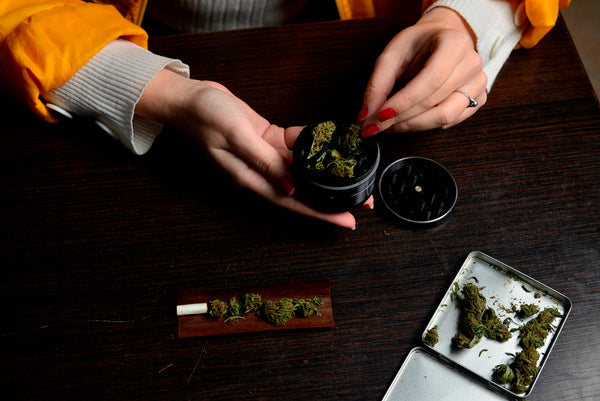
THCA Flower, like other cannabis forms, can be consumed in several ways. Each method affects the product's potency, onset time, and overall experience. Here’s a breakdown of the common methods and their specifics:
Smoking
- Method: Smoking THCA Flower in joints, pipes, or bongs is one of the most traditional methods. It involves direct combustion of the flower.
- Effects: When THCA Flower is smoked, the heat causes decarboxylation, converting THCA into THC. Therefore, users will experience psychoactive effects similar to those of regular THC-rich cannabis.
- Considerations: The immediate onset of effects makes this method popular. However, it's less suitable for those looking to avoid THC's psychoactive impact.
Vaporizing
- Method: Vaporizing involves heating the flower at a temperature that is high enough to vaporize the cannabinoids but not burn the plant material. This can be done using a dry herb vaporizer.
- Effects: Like smoking, the heat from vaporizing will convert THCA to THC, but it’s generally considered a healthier alternative due to the absence of smoke.
- Considerations: Vaporizers provide a cleaner taste and potentially less harmful byproducts than smoking.
Juicing Raw Cannabis
- Method: One of the most unique ways to use THCA Flower is by juicing the raw cannabis leaves and buds. This method does not involve heat, so the THCA remains in its original state.
- Effects: Consuming raw cannabis juice allows users to benefit from THCA without any psychoactive effects, as the THCA is not converted to THC.
- Considerations: This method is ideal for those interested in the potential health benefits of raw THCA, such as its anti-inflammatory and neuroprotective properties.
Other Innovative Methods
- Edibles and Tinctures: Some users incorporate raw THCA Flower into edibles or create tinctures. However, for THCA to remain intact, these must not undergo heating during preparation.
- Topicals: THCA can also be used in topicals, which are applied externally and can be beneficial for localized relief of pain or inflammation without psychoactive effects.
Each method of use offers different benefits and experiences, allowing cannabis enthusiasts to tailor their use according to their needs and lifestyle. Whether one prefers the traditional psychoactive effects or seeks the raw benefits of THCA, there’s a method that fits.
Effects from Smoking THCA Flower
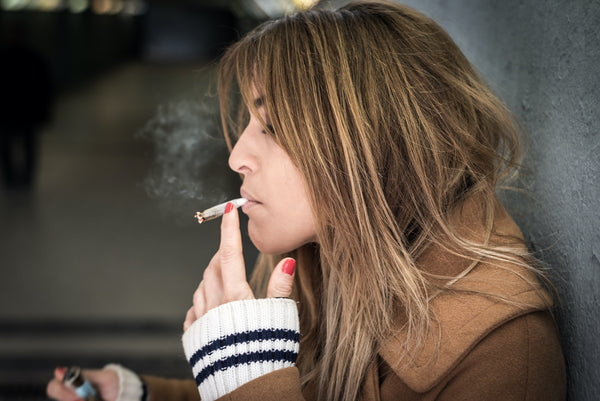
THCA Flower, while not psychoactive in its raw form, transforms and exhibits various effects depending on how it's consumed. Here's what users can expect:
Psychoactive Effects (When Decarboxylated)
- Smoking/Vaporizing: As mentioned earlier, smoking or vaporizing THCA Flower converts THCA into THC due to the heat involved. Users can expect effects similar to traditional THC, including euphoria, relaxation, and altered sensory perception.
- Edibles: If THCA Flower is decarboxylated before being used in edibles, it will induce effects similar to any other THC-infused product. This includes a longer onset time but a more prolonged and intense effect.
Potential Side Effects of THCA Flower
- When Heated: The side effects of THCA when converted to THC include the typical effects associated with THC, such as dry mouth, red eyes, and in some cases, anxiety or paranoia.
- When Consumed Raw: There are very few reported side effects of raw THCA. However, due to its potent biological activities, users should consult with a healthcare provider before starting any new treatment, especially those with pre-existing conditions or those taking other medications.
Is THCA Flower Safe?
General Safety
- THCA Flower is generally considered safe when used responsibly. Its non-psychoactive nature when raw makes it a low-risk option for those seeking the benefits of cannabinoids without the high. However, when heated, it becomes psychoactive, and the usual precautions for THC consumption should be considered.
Potential Drug Interactions
- As with any cannabinoid, there is potential for THCA to interact with other medications. Although research on THCA is still in its early stages, users taking prescription medications should consult with a healthcare provider to avoid any adverse interactions.
Recommended Usage
- For those new to THCA Flower, starting with small doses and gradually increasing as needed is advisable. This approach allows users to gauge their tolerance and avoid the negative effects associated with high doses of THC, should any THCA convert during consumption.
Is THCA Flower Legal?
Variability by Region
- The legal status of THCA Flower can vary widely depending on local cannabis laws. In jurisdictions where cannabis is legal for recreational or medical use, THCA Flower is typically legal as well. However, in areas where cannabis remains illegal, any form of cannabis, including THCA Flower, would also be illegal.
Federal and State Laws
- In countries like the United States, the legal landscape is complex due to the difference between federal and state laws. While THCA itself is not scheduled under the Controlled Substances Act, as soon as it is heated and becomes THC, it falls under the same restrictions as other forms of psychoactive cannabis.
Importance of Compliance
- For both consumers and producers, understanding and complying with local regulations is crucial. This includes staying informed about not only the legality of THCA Flower but also its transportation across state lines or international borders, which can lead to legal complications.
Final Thoughts
THCA Flower offers an intriguing alternative to traditional cannabis products, providing unique benefits in its raw form and familiar effects when heated. Its potential for contributing to well-being and health, combined with a growing interest in lesser-known cannabinoids, makes THCA Flower a significant topic for cannabis enthusiasts. As the landscape of cannabis continues to evolve, staying informed and compliant with laws will ensure that users can safely explore the benefits of THCA Flower.








